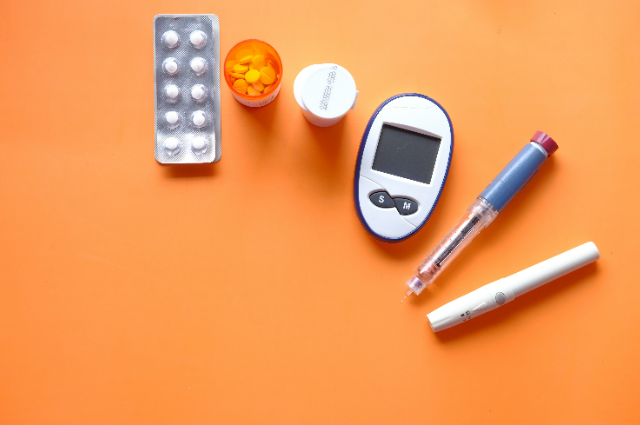
Photo by Towfiqu barbhuiya on Unsplash
Every year, on November 14th, the world comes together to observe World Diabetes Day, a day dedicated to raising awareness about diabetes and promoting actions to tackle this global health issue. As we delve into the significance of this day, it's essential to understand the impact of diabetes on individuals, communities, and healthcare systems worldwide.
The Diabetes Epidemic
Diabetes, a chronic metabolic disorder, has reached epidemic proportions, affecting millions of people globally. The two main types, Type 1 and Type 2 diabetes, share the common characteristic of elevated blood sugar levels. Type 1 diabetes is often diagnosed in childhood and results from the body's inability to produce insulin. In contrast, Type 2 diabetes, which is more prevalent, occurs when the body cannot effectively use insulin.
The World Health Organization (WHO) estimates that over 420 million people live with diabetes worldwide, with this number expected to rise significantly in the coming years. This surge is linked to lifestyle changes, including sedentary habits and unhealthy diets, leading to an increase in obesity – a major risk factor for Type 2 diabetes.
The Importance of Awareness
World Diabetes Day serves as a critical platform for educating the public about diabetes, its risk factors, and preventive measures. Through various campaigns and initiatives, the day aims to dispel myths, reduce stigma, and encourage early detection. Education is a powerful tool in empowering individuals to make informed choices about their health and lifestyle.
Governments, non-profit organizations, and healthcare professionals around the globe use this occasion to organize events, workshops, and awareness campaigns. These efforts not only reach those living with diabetes but also resonate with the broader population, fostering a culture of health consciousness and diabetes prevention.
Advocacy for Access to Care
Access to healthcare is a fundamental human right, yet many individuals with diabetes face challenges in obtaining adequate care. On World Diabetes Day, advocacy efforts intensify to highlight the importance of affordable and accessible healthcare services for diabetes management. This includes regular screenings, medication, and education on self-management.
The day also emphasizes the role of governments and policymakers in creating environments that support healthy living. This involves implementing policies that promote physical activity, regulate the food industry, and ensure that diabetes education is integrated into school curricula.
Research and Innovation
Scientific research plays a pivotal role in advancing our understanding of diabetes and developing innovative treatments. World Diabetes Day underscores the need for continued investment in research to discover new therapies, improve existing treatments, and ultimately find a cure.
Support for diabetes research extends beyond laboratories and academia. The public's understanding of the importance of research funding is vital for garnering resources and fostering collaboration between researchers, healthcare professionals, and pharmaceutical companies.
Uniting for a Common Cause
World Diabetes Day serves as a unifying force, bringing together diverse communities, organizations, and individuals committed to combating diabetes. It is a day to celebrate the strength of those living with diabetes, honor the efforts of healthcare professionals, and acknowledge the contributions of advocates and researchers.
The global nature of this observance emphasizes that diabetes is not limited by borders or demographics. It is a shared concern that requires a collective response to address its multifaceted challenges.
Conclusion
World Diabetes Day is more than a date on the calendar; it is a global call to action. It urges us to reflect on the impact of diabetes, promote awareness, advocate for improved access to care, support research initiatives, and unite in the pursuit of a diabetes-free world. As we mark this day each year, let it serve as a reminder that the fight against diabetes is a collective responsibility, requiring the concerted efforts of individuals, communities, and nations worldwide.
